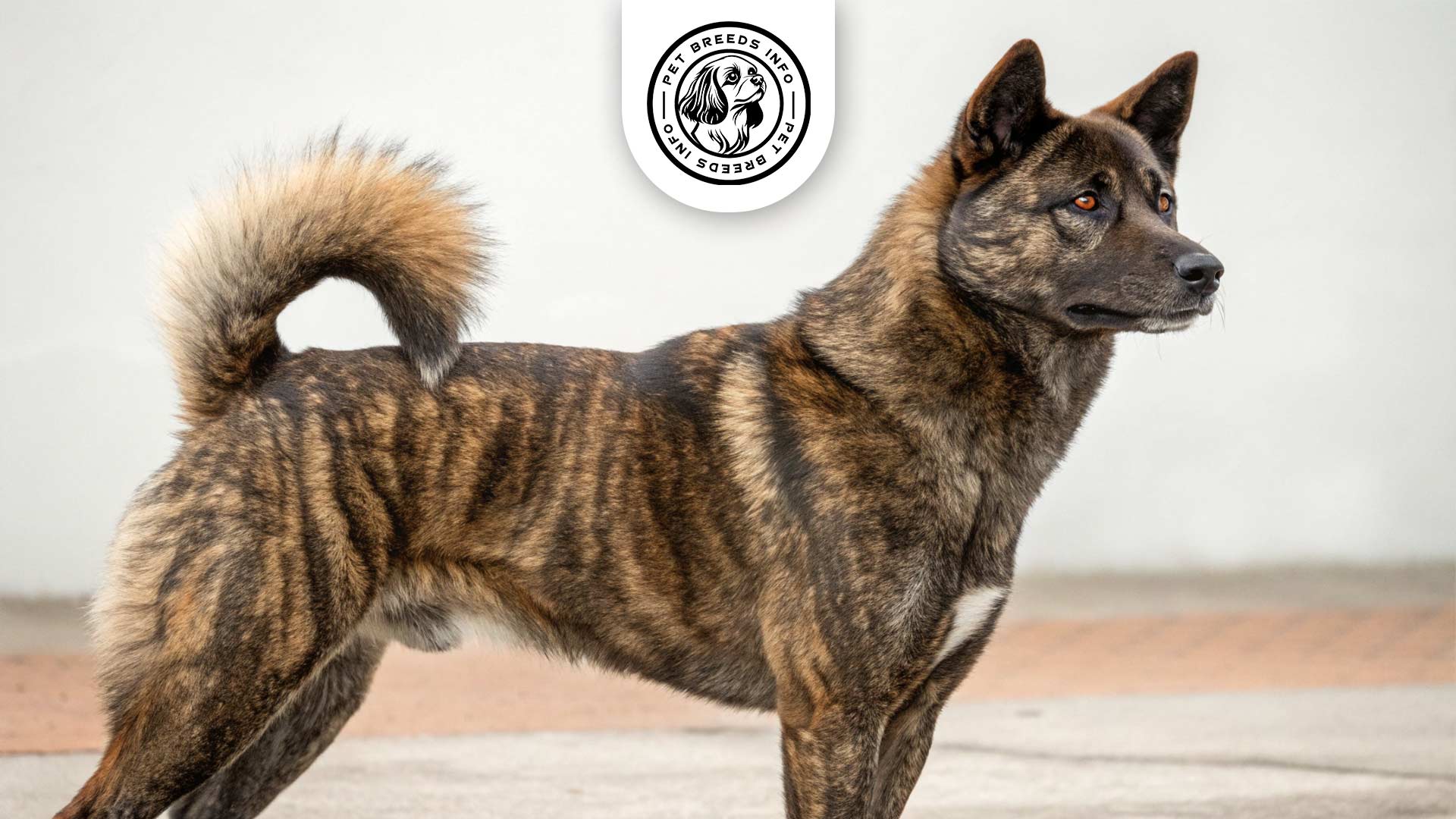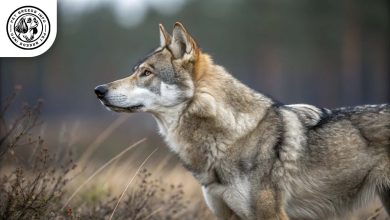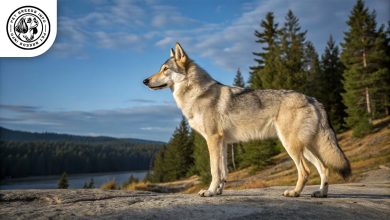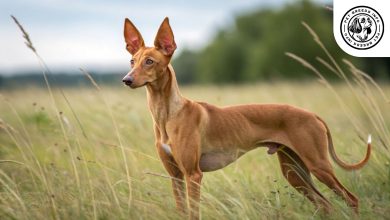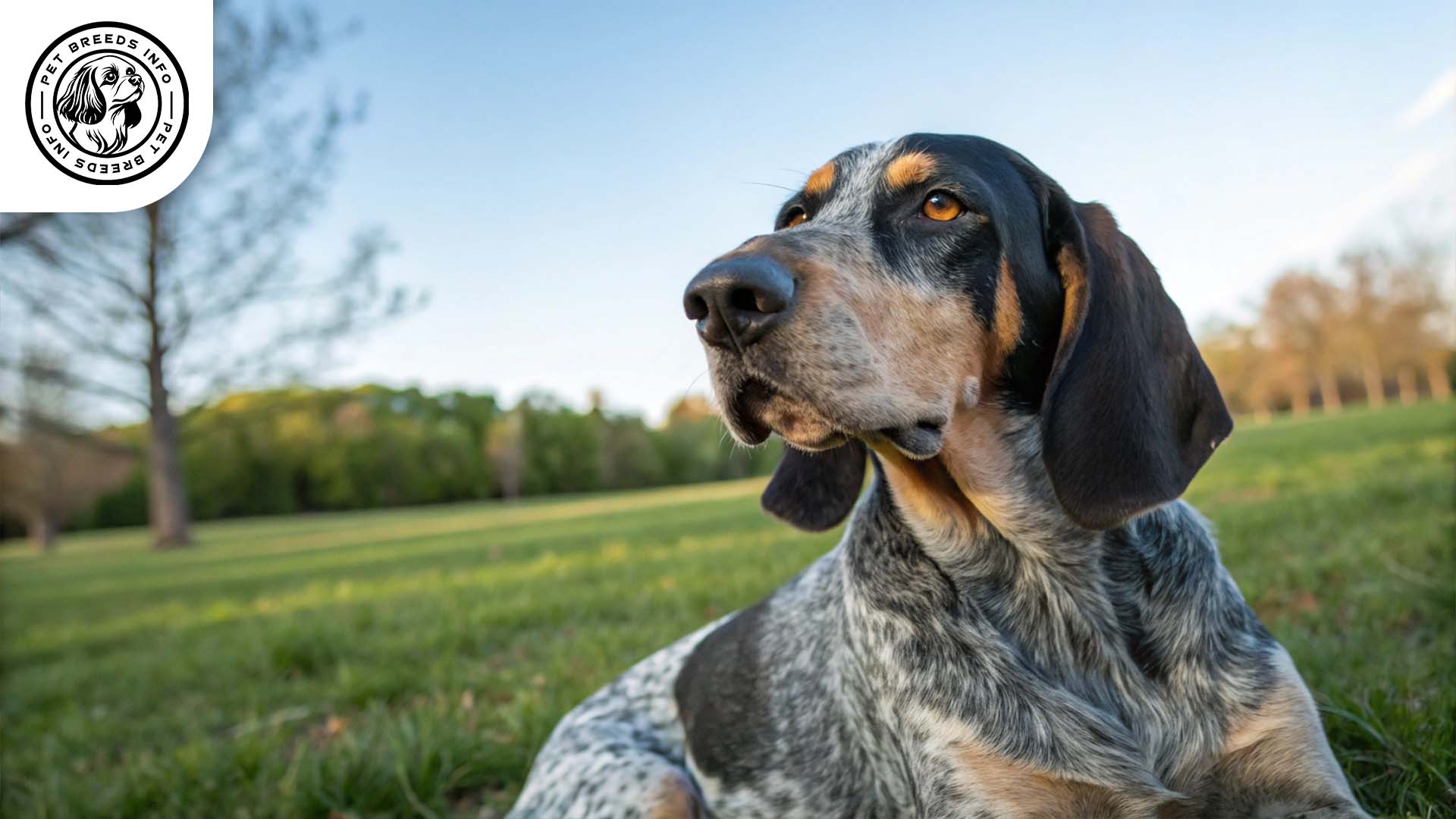Kai Ken Dog Breed: Size, Health, Price & Personality
General Introduction of the Breed
The Kai Ken (甲斐犬), also known as the Tora Inu or Kai Inu, is a rare and ancient breed originating from Japan. It hails from the mountainous Kai Province, now known as Yamanashi Prefecture.
Historically, the Kai Ken was developed by Japanese hunters for tracking and hunting wild game such as boar and deer. Its excellent adaptability to rugged terrain and keen hunting abilities made it a valued companion for centuries. Recognized as a national treasure of Japan, this breed remains one of the rarest Japanese dog breeds today.
Table of Contents
| Weight | Males: 30-40 pounds Females: 25-35 pounds |
| Lifespan | 12-15 years |
| Diet | High-quality, protein-rich; avoid fillers & toxic foods. Two meals daily. |
| Care | Daily exercise, fenced yard ideal, moderate shedding (brush weekly), good in cold, monitor heat, routine hygiene. |
| Health | Generally healthy. Potential for hip/patellar issues, eye disorders. Regular vet checks advised. |
| Color | Black, red, or brown brindle (markings develop with age). |
| Nature | Intelligent, trainable, energetic, somewhat independent, reserved with strangers, good with family/kids (with socialization), strong prey drive. |
| Price | Puppy: $1,500 – $3,000. Adoption possible. |
Physical Characteristics
The Kai Ken is a medium-sized, well-proportioned dog with a sturdy build. Males typically stand between 18-22 inches tall and weigh around 30-40 pounds, while females are slightly smaller, measuring 16-20 inches in height and weighing 25-35 pounds.
This breed features a dense double coat that provides insulation against harsh weather. Kai Kens are known for their brindle-patterned coats, coming in three primary colors: black brindle, red brindle, and brown brindle. The brindle markings become more prominent as the dog matures.
Their almond-shaped dark brown eyes exhibit intelligence and alertness. The ears are triangular, erect, and slightly forward-leaning, contributing to their keen expression. The tail is thick and typically curls over the back or forms a sickle shape.
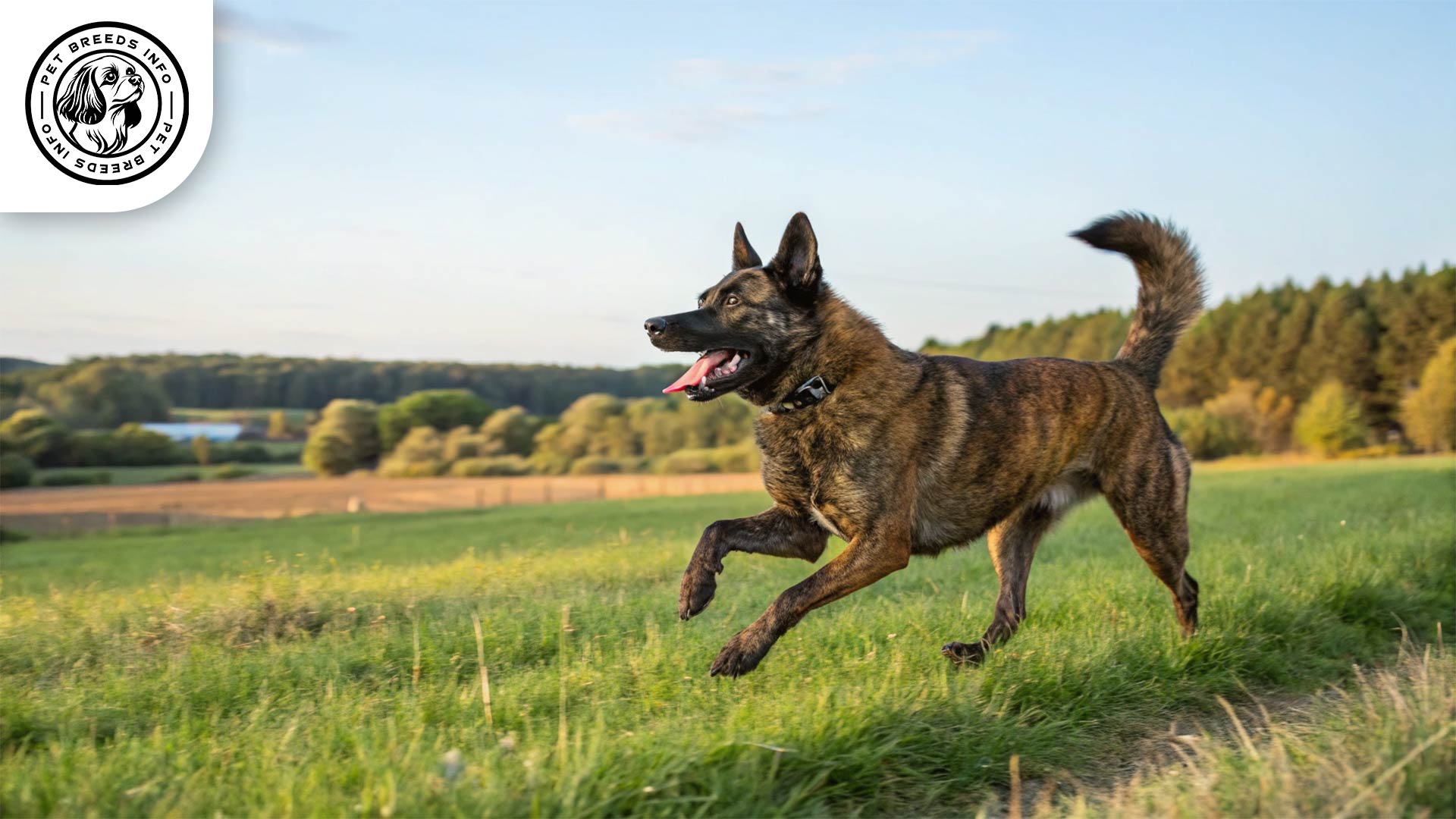
Personality and Temperament
The Kai Ken is an intelligent and highly trainable breed, capable of learning commands quickly. Their innate instincts make them excellent problem solvers.
They are energetic and require regular physical and mental stimulation to stay happy. While they form strong bonds with their owners, they can be somewhat independent and reserved around strangers.
Kai Kens are generally good with children and known to be affectionate toward their families. However, early socialization is necessary, as they can exhibit a cautious nature when meeting new people or animals.
The breed retains its strong prey drive due to its hunting background, making it essential for owners to supervise interactions with smaller pets. Although playful, they remain highly alert and attentive to their surroundings.
Read More: Italian Greyhound Dog
Care and Maintenance Requirements
Regular exercise is vital for the Kai Ken to maintain its physical and mental well-being. Daily walks, playtime, and off-leash running in secure areas suit this active breed.
While adaptable to apartment living, they thrive best in homes with fenced yards where they can explore safely. Due to their strong instincts, they should not be left off-leash in unsecured areas.
Kai Kens have moderate shedding, with heavier shedding occurring seasonally. Weekly brushing helps manage loose fur, and more frequent grooming is needed during shedding seasons. Their weather-resistant coat requires minimal bathing.
They tolerate cold weather well but may struggle with excessive heat or humidity, making temperature regulation an essential consideration.
Routine hygiene care, including nail trimming, ear cleaning, and dental maintenance, should be established early in life to prevent health issues.
Diet and Nutrition
The Kai Ken thrives on a high-quality diet rich in protein. A balanced diet, whether dry kibble, raw food, or wet food, should be tailored to their age, activity level, and health requirements.
Avoid feeding excessive grains, artificial additives, or low-quality fillers. Foods such as chocolate, grapes, onions, garlic, and excessive fatty foods should always be avoided.
Dividing meals into two portions per day helps maintain steady energy levels and prevents overeating.
Health and Common Medical Issues
The Kai Ken is generally a healthy breed with a lifespan of approximately 12-15 years. However, like all breeds, they can be prone to certain health conditions.
Common concerns include hip dysplasia, patellar luxation, and eye disorders. Regular veterinary check-ups and screenings help detect any issues early.
Routine vaccinations, parasite prevention, and annual health exams help ensure a long and healthy life.
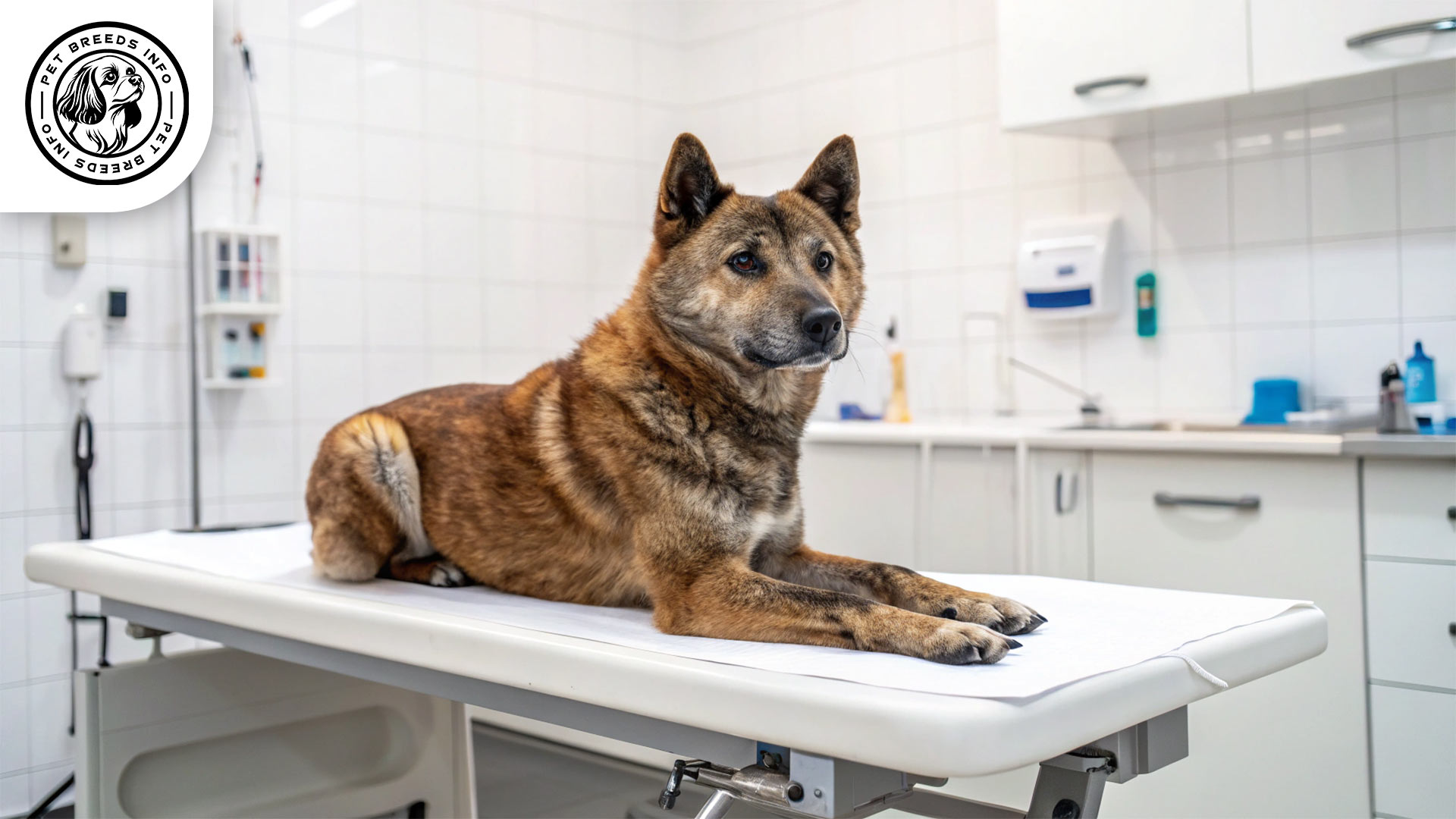
Training and Behavior Management
Kai Kens are intelligent and respond well to positive reinforcement-based training. Early obedience training and socialization are crucial in shaping their temperament.
Because of their independent nature, consistency and patience are key. Using rewards, praise, and firm but kind leadership ensures effective training.
Engaging in mentally stimulating activities such as puzzle games and scent work can help prevent boredom and encourage positive behavior.
Read More: Japanese Spitz Dog
Interaction with Other Animals and Humans
Kai Kens are affectionate and loyal toward their families, forming strong attachments to their owners. They do well with children when properly socialized but should always be supervised during interactions.
Due to their hunting instincts, they may not always get along with smaller animals unless raised with them from an early age.
The breed is well-suited for active individuals or families with experience handling independent, intelligent breeds.
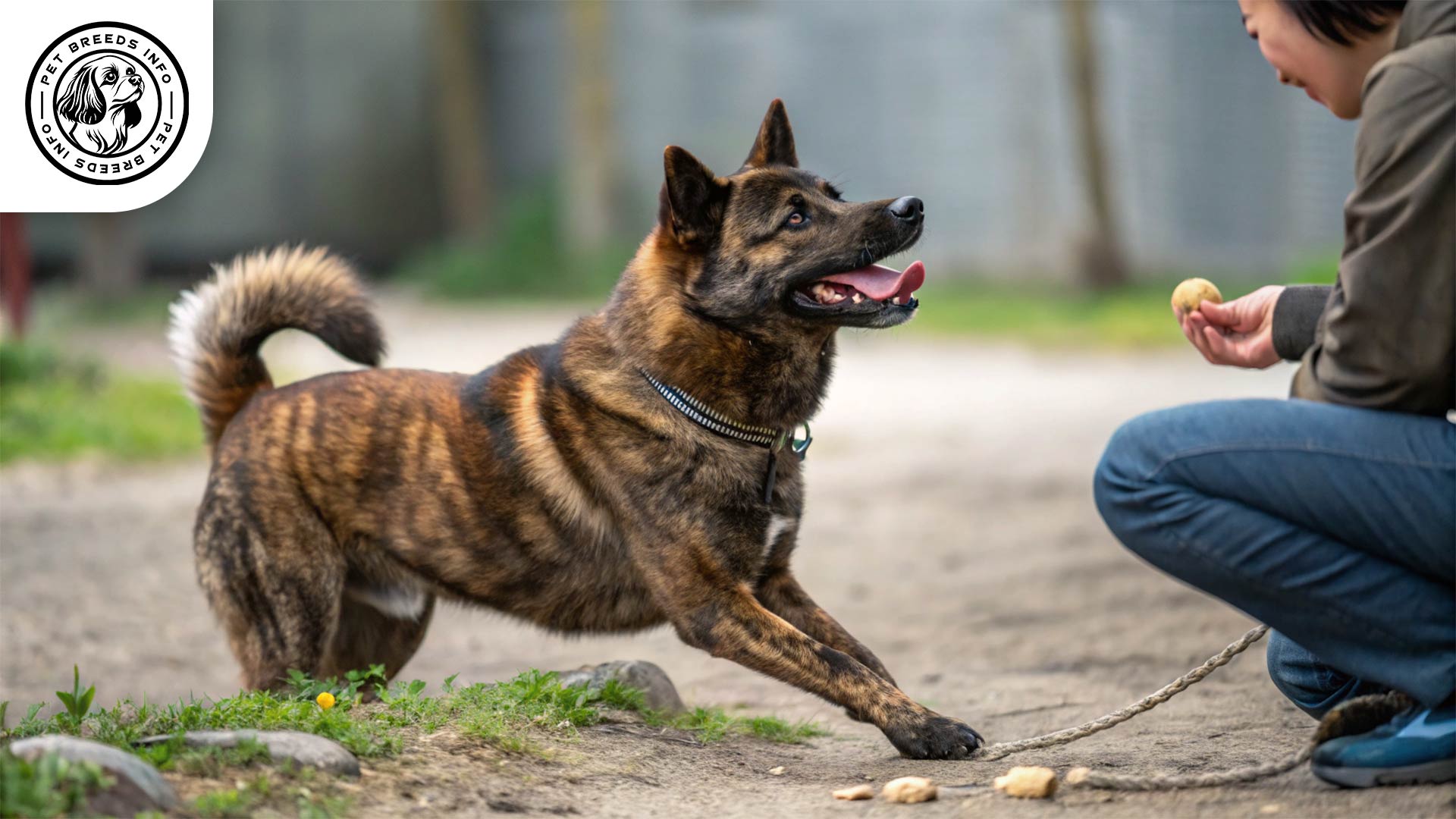
Price and Availability
The Kai Ken remains a rare breed outside Japan. The price for a Kai Ken puppy from a reputable breeder can range between $1,500 and $3,000, depending on lineage and breeder reputation.
When looking to adopt or purchase a Kai Ken, it is essential to seek reputable breeders who prioritize health testing and ethical breeding practices.
Rescue organizations specializing in Japanese breeds may also have Kai Kens available for adoption.
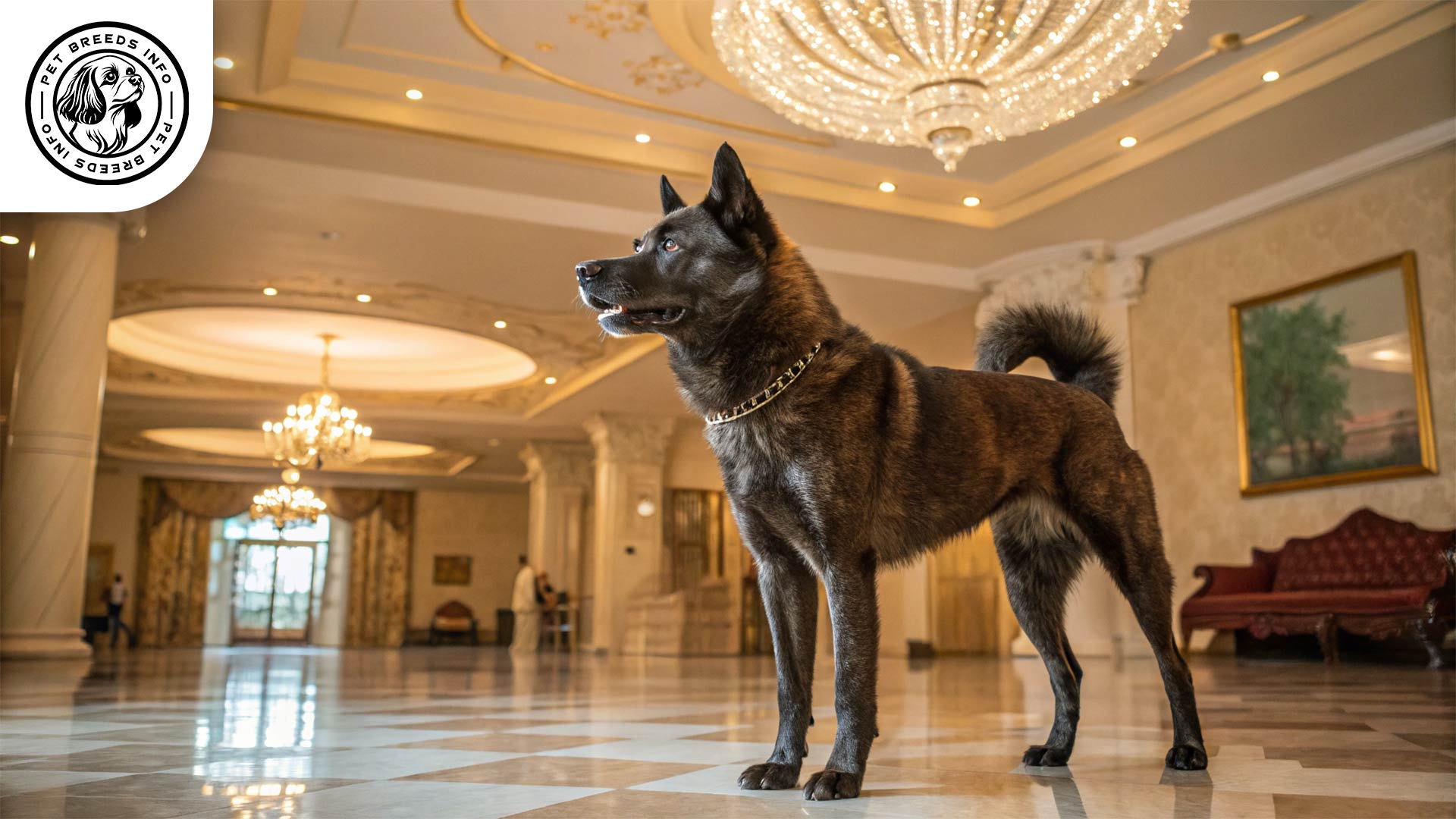
Conclusion and Final Thoughts
The Kai Ken is a remarkable, intelligent, and loyal breed with deep roots in Japanese history. It is an excellent companion for those who appreciate an active and independent dog.
Ideal for experienced dog owners, this breed thrives in environments where it receives ample exercise, mental stimulation, and socialization.
Potential owners should consider its strong prey drive, reserved nature with strangers, and need for dedicated training and care before bringing a Kai Ken into their home.
Read More: Japanese Chin Dog
FAQ
What is the Kai Ken’s personality like?
Kai Kens are intelligent and highly trainable dogs with plenty of energy. They form strong bonds with their families and are known to be affectionate, especially with children they’ve been properly socialized with. While somewhat independent and reserved around strangers, they are loyal and alert companions.
How much exercise does a Kai Ken need?
Kai Kens are energetic and require regular physical and mental stimulation. Daily walks, playtime, and off-leash running in secure areas are ideal for this active breed. They thrive in homes with fenced yards where they can explore safely.
Are Kai Kens good with children and other pets?
Kai Kens can be good with children when properly socialized from an early age. However, due to their strong hunting background, they have a high prey drive and may not get along with smaller pets unless raised with them from puppyhood. Supervision is always recommended.
How rare is the Kai Ken and how much does it cost?
The Kai Ken is a rare breed, especially outside of Japan. A puppy from a reputable breeder can range in price from $1,500 to $3,000, depending on lineage and breeder reputation. It’s important to seek out ethical breeders who prioritize health testing.
